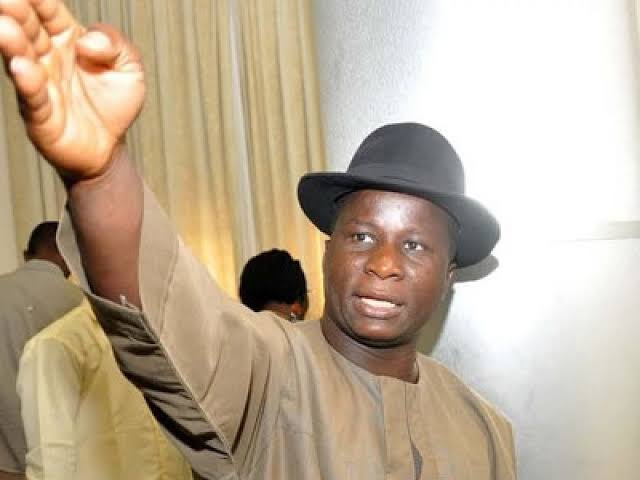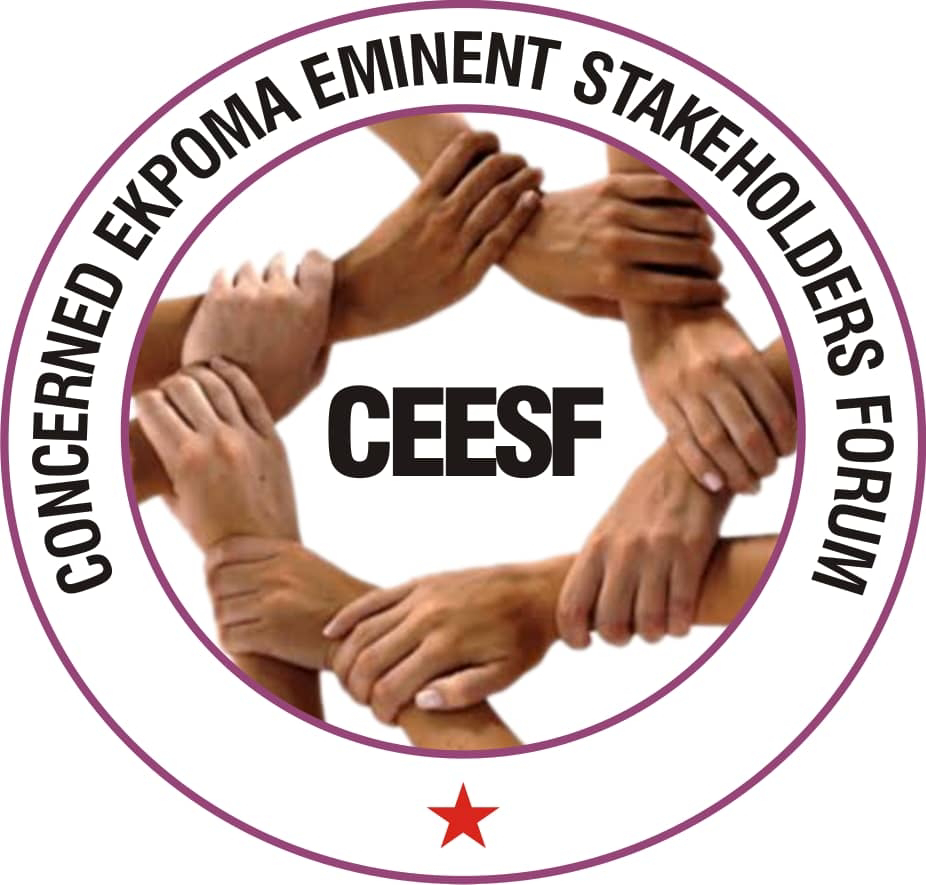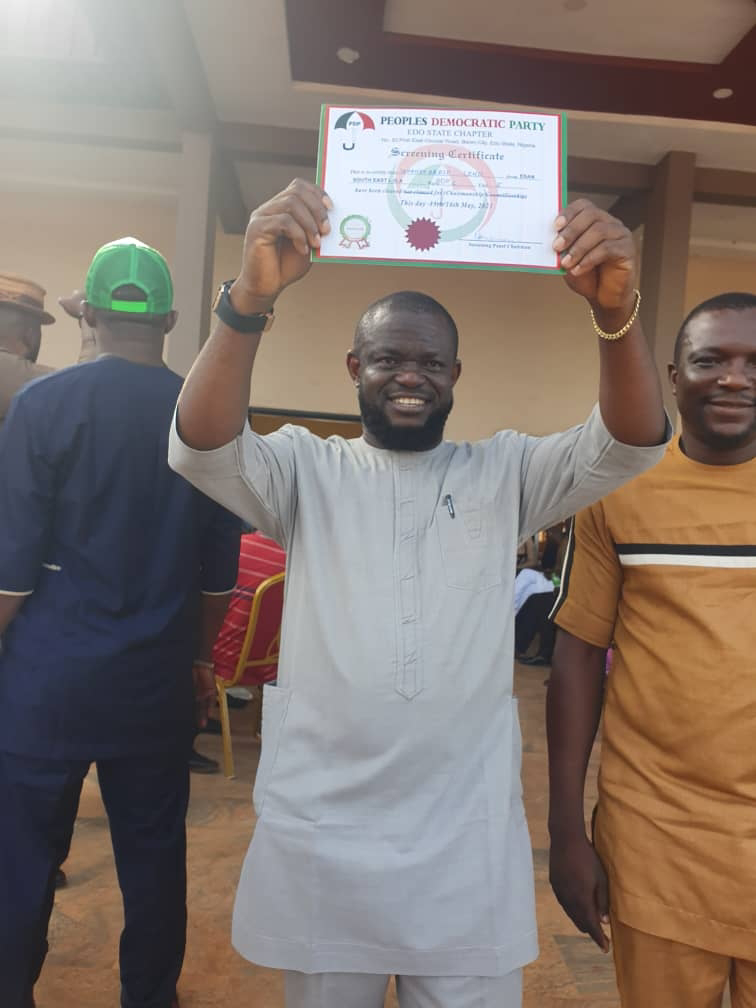ANEEJ Faults NEC's Attempt to Rubbish Social Register
By Lucky Isibor
A foremost environmental and economic rights group, the African Network for Environment and Economic Justice (ANEEJ), has deplored attempts by the newly inaugurated National Economic Council (NEC), to call to question the integrity of the Nigeria Social Register (NSR) which was developed by the Buhari/Osinbajo administration with a view to jettisoning it.
Executive Director, ANEEJ
In a statement titled, "NEC, NATIONAL SOCIAL REGISTER & REINVENTING THE WHEEL", signed by the Rev. David Ugolor, the Executive Director of ANEEJ, noted that the compilation of the NSR involved
the direct engagement of the States Governments with the World Bank and complied with international best practices.
Saddened by the twist introduced into the NSR by NEC, which comprises of the Governors of the thirty six states under the chairmanship of the Vice-president Kassim Shettima, the statement said, "Our attention has been drawn to the various reactions that have greeted one of the outcomes of the National Economic Council meeting held on Thursday, 20 July, 2023 which is calling into question the overall integrity of the National Social Register put in place by the Buhari/Osinbajo administration in the last 8 years.
"However, the official press statement from the Office of the Vice President had been silent on that particular outcome, yet the news everywhere is that NEC has jettisoned the National Social Register. We had expected a rebuttal or some clarification from Office of the Vice President to douse the tension generated, this is yet to happen days after the meeting, hence the need for this public statement.
"Therefore, in order not to embroil a serious governance tool in the cesspool of political abracadabra, it is imperative to assert the facts surrounding the creation of that Register and the transparent process adopted in developing it based on our experience in leading over 800 Civil Society Organisations and individuals drawn from the six geo-political zones of Nigeria to carry out an independent end-to-end monitoring (upstream and downstream) of the utilization of the second tranche of the Late General Sani Abacha $322.5million returned from Switzerland, otherwise known as Abacha II. Our involvement was in addition to the internal grievance mechanisms that were built into the structure by the Federal Government agencies".
While enumerating the reasons for the involvement of ANEEJ in monitoring the disbursement of the recovered second tranche of Abacha loot from Switzerland, Ugolor emphasised that the compilation of the NSR was about the states, adding that was why each State Government was asked to create a State Operations Coordinating Unit (SOCU) in the Ministry of Planning and nominated staff with relevant experience to handle data collection and collation.
"To demonstrate how much the Register was first and foremost about the States, each State Government was asked to establish a State Operations Coordinating Office (SOCU) within the State Ministry of Planning, nominating staff that had the requisite credentials for data collation, ranging from statistics, monitoring, gender, etc. State and LGA staff were trained as enumerators, along the process outlined in the Guidelines, and thereafter commenced direct engagement with the identified poorest communities through a process of focus group discussions. These communities were encouraged to identify the parameters for poverty within their own context, and then name the households that fell into those parameters.
"Ultimately, after a plenary was held and there was a sign off on the list drawn up by the community itself, the enumerators proceeded to visit the Identified households for data that was critical for a better appreciation of the poverty levels endemic in the lives of these vulnerable Nigerians. Fields that were captured included size of household, gender components, age, levels of education, livelihoods, living conditions and assets. All the information are captured on a technology device that consisted of a proxy means test formula which automatically provided a ranking for the poverty levels of each household, based on the information entered.
"The States were, therefore, directly responsible for the collation of data that comprises the State Social Registers and the SOCU’s, in the various Ministries of Planning, still exist and can confirm this fact. Subsequent to State, LGA & community collation, however, the data is sent to the National Social Safety Net Coordination Office at Federal level only for the purposes of cleaning & alignment with other State Social Registers. This is what became known as the National Social Register.
"It is, therefore, a matter of consternation that the National Social Register is being perceived and described as if it is singularly sourced and developed by Federal Government, when in fact it is the States and their staff that have oversighted, collated and defined their own Social Registers, only submitting the data to the Federal Government for the purposes of providing a National Social Register, being necessary for a wholistic appreciation of poverty levels in the country.
"It is also pertinent to mention that, for the purposes of the World Bank-assisted cash transfers, only the poorest households on the NSR) from the NSR are paid the bi-monthly cash transfers (of N10,000) with funds derived from the World Bank and the Abacha ‘loot’. Indeed, for the purpose of this stream of cash transfers, LGA officials were intentionally trained on financial literacy and then facilitated to visit each and every household that was a recipient of the cash transfers, every week, to hold their hands and guide them through their savings and investment decision-making."
Insisting that the cash transfer was done with utmost integrity, ANEEJ said,
"It is on record that our organisation-ANEEJ, with over 800 monitors across the country, monitored the disbursement of the Cash Transfers and commended the integrity of the National Social Register in our reports. We stand on that commendation, any day, any time.
"It is also important to clarify that the World Bank was central to the development of the Register, which factor facilitated the disbursement of the funds from the first tranche of the Abacha loot returned to Nigeria, through a judgement delivered by the Swiss Government. Donor agencies and development partners actually commended the integrity of the National Social Register and the diligent process that produced it.
There are numerous video testimonials by beneficiaries of the World Bank-assisted cash transfers, and the use of the NSR for the benefit of the poor and vulnerable households was not in contention.
"Specifically as at 30th June, 2023 the NSR consisted of 62,819,214 individuals; 15,730,004 households, over 8,000 Federal electoral wards, 764 LGAs and almost 200,000 communities across all the States of the Federation & the FCT".
While clarifying the difference between the disbursement of Abacha loot, where the National Social Register was used to disburse to those on the NSR at a rate of N10,000 bi-monthly to poor Nigerians; Ugolor emphasised that this is different from the cash transfer for women established by the Ministry of Humanitarian Affairs, noting that the ministry had an appropriation of about N800M from the National Assembly, adding that it was a one-off programme of N20,000 distributed to some selected women.
He therefore urged Nigerians to continue to insist on insulating the NSR from politics and undue favouritism.
"Indeed, it should be clarified that the 'cash transfers for rural women', then created by the Ministry, was a newly designed program for certain cash transfers for which the Ministry got the appropriation of about N800m directly from the National Assembly. This was the N20,000 one-off program where cash was distributed to select women, without utilising the World Bank money or Abacha loot and certainly no beneficiaries from the NSR. The list of these beneficiaries comprising random individuals gathering at select points to collect N20,000 each has haunted the NSR as the public seems to believe that those women were derived from the NSR, whereas they were not.
"Nigerians must continue to insist that while the NSR could be improved upon, it should be insulated from politics and favoritism through an open community-based approach.
"It does appear that there is a distrust of the content of the NSR because politicians were not involved in the process. This, unarguably was intentional, to ensure that the households identified are known & identified by persons living within their midst, as truly in need of support".




Comments
Post a Comment